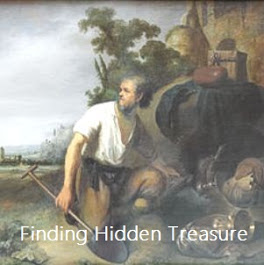Friday, December 7, 2012
Friday, October 19, 2012
The Whole Earth is full of His Glory
 The opening of the sixth chapter of the book of Isaiah is one of the most intriguing passages in all of the Bible. The first three verses read as follows:
The opening of the sixth chapter of the book of Isaiah is one of the most intriguing passages in all of the Bible. The first three verses read as follows:
Posted by
Walter Hampel
at
12:00 AM
0
comments
![]()
Labels: Earth, Glory of God, Isaiah; Isaiah 6; John 12; Holy
Friday, September 28, 2012
A Great Summary of the Gospel
The program can be found at http://restoringthecore.com/?p=69
In the course of the podcast, I read from a section of Brakel's great work, The Christian's Reasonable Service, to present a wonderful summary of the Gospel. It is among the best which I have ever encountered. I offer the text for your benefit and blessing:
Posted by
Walter Hampel
at
12:31 AM
0
comments
![]()
Labels: Christian's Reasonable Service, Finding Hidden Treasure, gospel, Gospel summary, Paul M Smalley, Paul Smalley, Restoring The Core, Wilhemus A Brakel
Thursday, September 13, 2012
Finding Hidden Treasure - Episode 2
 Episode 2 of the podcast is now up on the net. The topic is the book The Pursuit of God by A.W. Tozer. The webpage is at http://restoringthecore.com/?p=54
Episode 2 of the podcast is now up on the net. The topic is the book The Pursuit of God by A.W. Tozer. The webpage is at http://restoringthecore.com/?p=54
Posted by
Walter Hampel
at
11:46 PM
0
comments
![]()
Labels: A.W. Tozer, Finding Hidden Treasure, Restoring The Core, The Pursuit of God, Walter Hampel
Friday, September 7, 2012
My new podcast is officially online
www.restoringthecore.com.
http://www.facebook.com/RestoringTheCore
Please stop by the Facebook page and "like" us.
Posted by
Walter Hampel
at
12:15 AM
0
comments
![]()
Labels: Finding Hidden Treasure, new podcast, Restoring The Core, School of the Solitary Place, Walter Hampel
Saturday, June 2, 2012
The Transforming Glory of God
Posted by
Walter Hampel
at
12:45 AM
0
comments
![]()
Labels: Bible, Glory of Christ, Glory of God, John Owen, meditation
Monday, February 20, 2012
The Weight of Glory
 Recently, I have run across a number of references to an essay (actually originally composed as a sermon) by C.S. Lewis written in the early 1940's. I took the time to read it about a month ago. C.S. Lewis had some profound insights into how we humans are anything but ordinary.
Recently, I have run across a number of references to an essay (actually originally composed as a sermon) by C.S. Lewis written in the early 1940's. I took the time to read it about a month ago. C.S. Lewis had some profound insights into how we humans are anything but ordinary.
Posted by
Walter Hampel
at
1:17 AM
0
comments
![]()
Labels: C.S. Lewis, Weight of Glory





